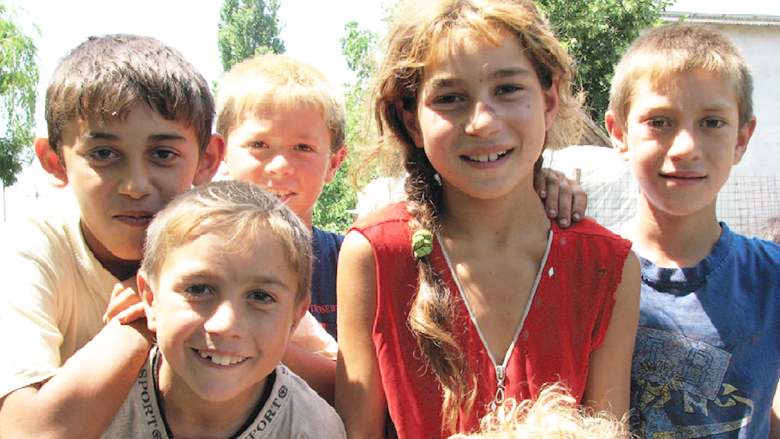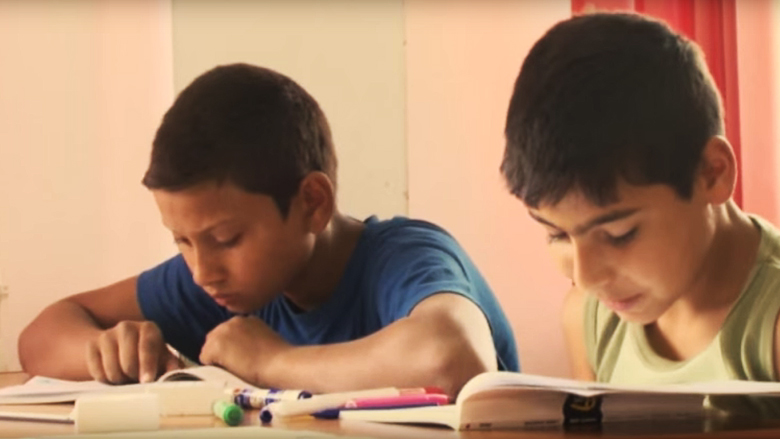The Roma are one of Europe’s largest ethnic minorities. While many Roma achieve success in their professional and civic lives, far too many others are among the region’s poorest and most vulnerable people – often facing pervasive poverty, exclusion, and discrimination.
Leveling the playing field for Roma populations is a necessary pre-requisite for European societies to attain shared prosperity and inclusive growth. A new World Bank report, Being Fair, Faring Better: Promoting Equality of Opportunity for Marginalized Roma, focuses on those Roma across the region who are most at risk of being marginalized and looks at ways to improve their access to opportunities.
In the EU member countries of Central and Eastern Europe (CEE) with substantial Roma populations, inequalities between Roma and non-Roma are striking and usually start early in life. Some of these inequalities reflect hard-wired family circumstances. For example, a Roma child is much more likely to grow up in a household at the very bottom of the income distribution, or have parents with little or no education.
Other inequalities reflect limited opportunities such as access to basic goods and services (quality education and adequate living conditions, for instance), which are necessary not only for realizing one’s potential in life but also for living with dignity.
While it is clear that early childhood education is a foundation for life-long success, Roma children are half as likely to attend pre-school as their non-Roma neighbors. Similarly, Roma children are systematically less likely than non-Roma to live in housing that has running water, a bathroom, or an indoor kitchen.
Survey data indicates that Roma parents generally have similar expectations to non-Roma parents when it comes to their children. For example, one Roma woman – a Hungarian anthropologist with an advanced degree – says, “My mother finished primary school and my father has a secondary vocational education. With the political changes, many factories closed down and after losing their jobs, my parents made a living by selling clothing. My parents had high expectations for my brother and me and wanted us to go far. Our job was to study.”
Yet, pervasive discrimination and even the very design of public institutions often lead to inequalities in access to basic services – undermining the prospects of current and future generations of Roma. For instance, a young female Roma university graduate from Romania reports that, “In primary school, there was not enough space for all the students in the main school building, so us Roma studied in an abandoned building, about a kilometer from the main school. The education in that school was really bad. I wasn’t ready for high school because I had a lot of gaps in my knowledge. I couldn’t speak proper Romanian. I was the only Roma in my high school class and everyone treated me like a person with a contagious disease.”
Equality of Opportunity is Good Economics
Equal access to proper education, healthcare and living conditions for marginalized Roma is a smart economic choice. A growing body of evidence shows that equity improves prospects for growth, and the quality and sustainability of such growth.
This is especially true in Central and Eastern Europe. Because of aging, emigration, and low fertility, the working-age population in the region is shrinking, putting economic growth at risk. For example, the size of the population has declined by more than 15 percent since 1990 in Bulgaria, and by over 5 percent in Romania and Hungary.
Countries can help ease this contraction by promoting active, healthy and productive aging, but also by investing in the young and growing Roma population, which offers a large potential. But right now, across Central and Eastern Europe, only one in four Roma is working, which represents a markedly lower employment rate than that observed among their non-Roma neighbors.
Moreover, those Roma who do work often have precarious informal jobs, and lower salaries – which indicates that significant barriers to finding quality jobs still persist for the Roma. This is partly due to low and inadequate skills, which in turn are driven by early inequalities in access to education.
A young Roma man from Bulgaria points out that the majority of Roma in his community cannot find decent jobs because they have low education and skills. “Many migrate, or they work in the grey economy, and some resort to petty crimes for a living,” he says. “There are few Roma families who make a living from agriculture and from breeding livestock.”
A Fair Chance for Success
The report looks at pathways to equal opportunity for Roma families. Starting early is essential. Promoting children’s good nutrition and access to quality early childhood education, with a focus on the first 1,000 days of life, will go a long way in promoting fair chances for Roma populations in Europe.
Progressive desegregation of schools, providing incentives for teachers to work in marginalized areas, and offering mentoring and remedial classes, would also help many Roma children grow into productive adults.
A young Roma woman university graduate from Slovakia stresses the benefit of studying in mainstream primary and secondary schools. “I am happy about that,” she says, “because if I went to a segregated school, I would probably not have studied past grade school.”
A Bulgarian Roma university graduate says that, “When I was a child, we didn’t have enough toys, but we had a lot of books at home. The first thing I did when I learned to read was to read all the books at home. I think this is the difference between my family and the other families in the village; the other children that I was playing with didn’t have many books at home.”
Providing for equal educational opportunities early on might not be enough, however. Many Roma could still face unfair chances at critical moments in their lives – when looking for a job, for instance.
At the same time, family circumstances can continue to shape children’s prospects in life. In other words, for returns from education to materialize, a broader set of policies must address some of the disadvantaged circumstances in which a large share of Roma children grow up, including promoting decent living conditions and access to employment for parents. Given such a chance, many of the once-disadvantaged might then be able to thrive.


